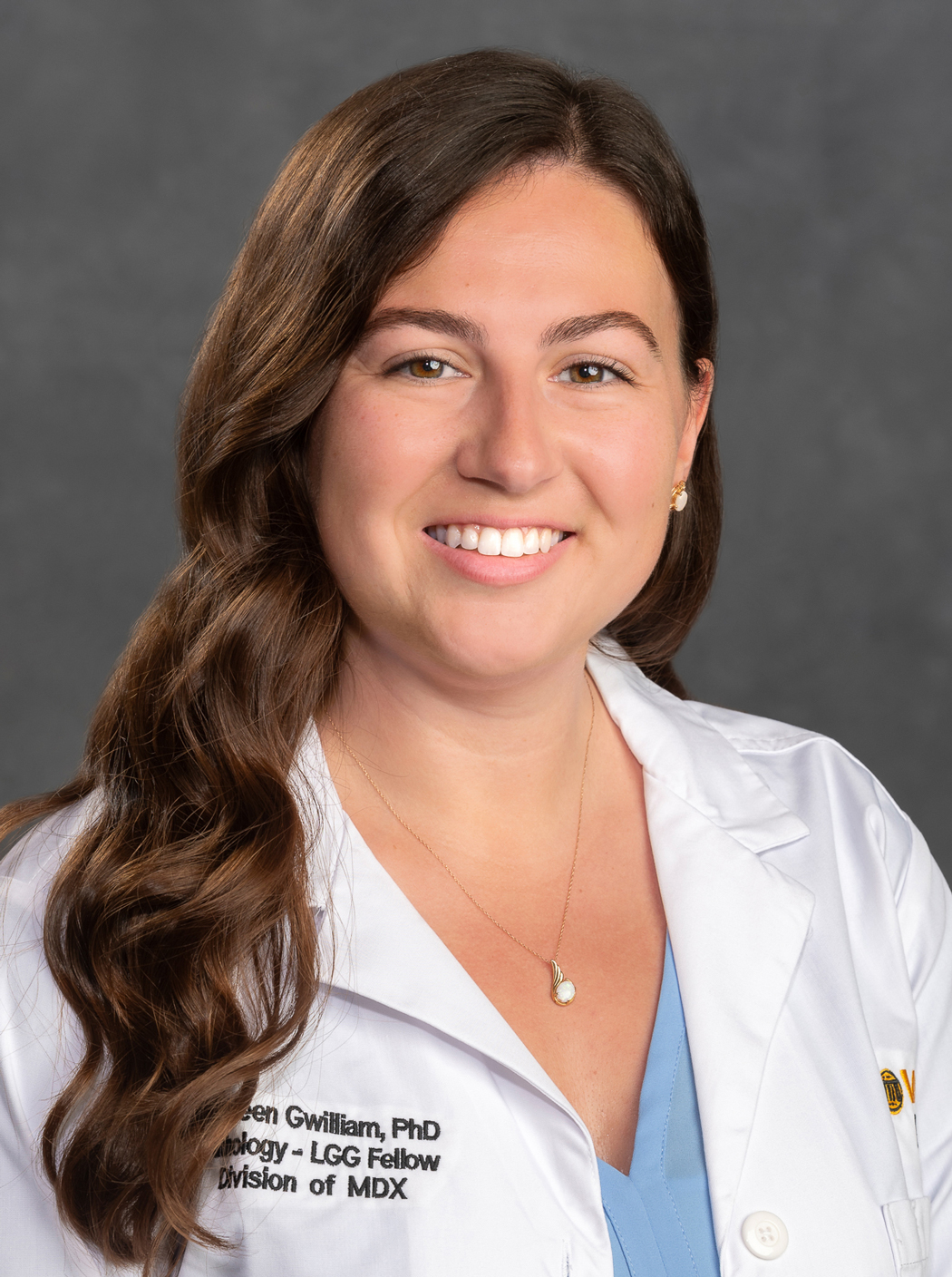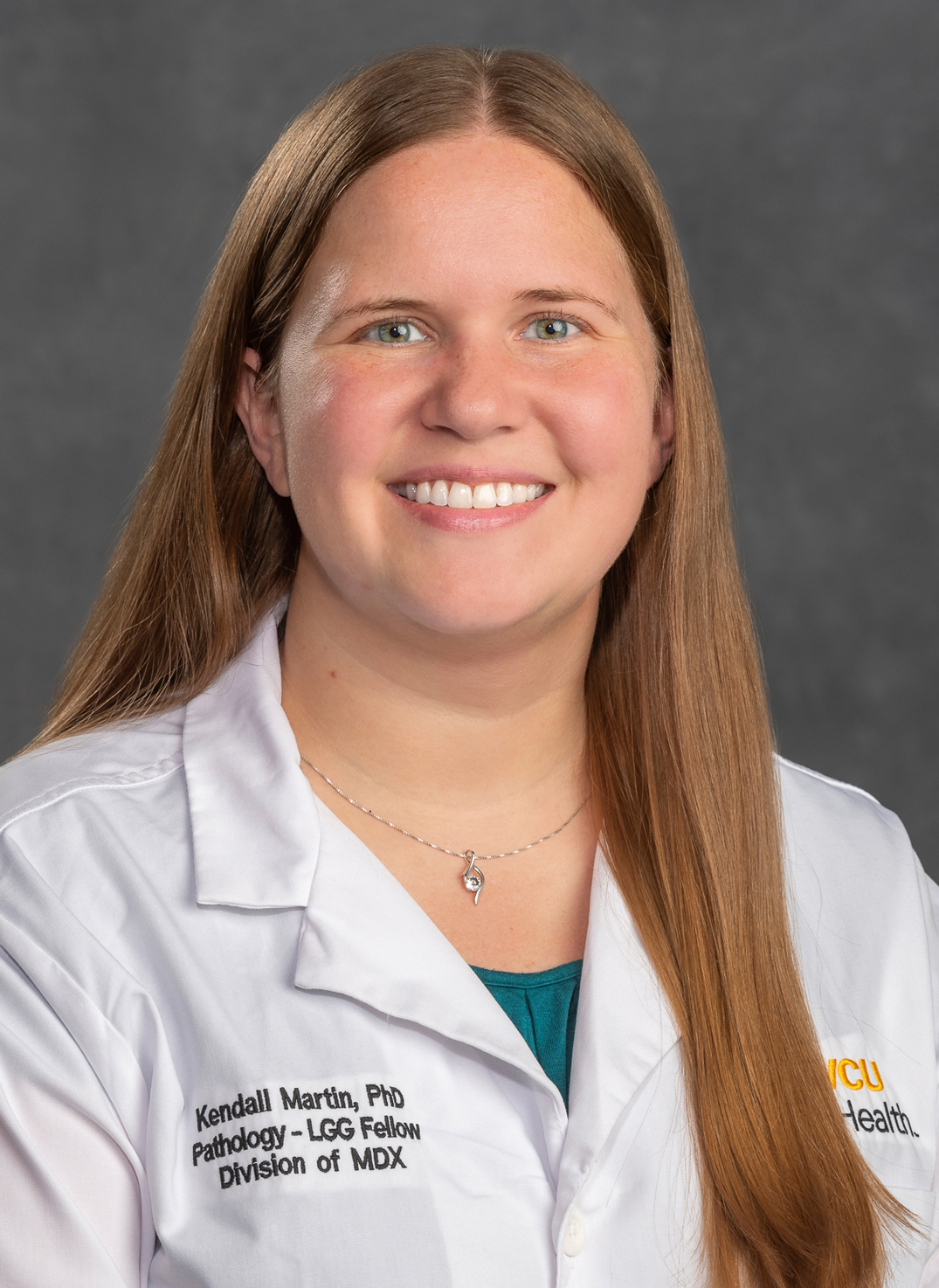Program Mission
Our mission is to train Laboratory Genetics and Genomics (LGG) fellows to excel in clinical genetic testing by providing them with the knowledge and skills they need to optimally interpret genetic test results, to integrate this information into the context of other clinical information, and to oversee this work in a high-complexity laboratory environment. Training our fellows to effectively communicate the results of genetic tests to healthcare professionals of diverse backgrounds and to teach others about genetic tests are also of paramount importance in attaining our mission.
This two-year, ACGME- and ABMGG-accredited fellowship provides: (a) didactic and hands on experience in laboratory genetics and genomics techniques to aid in the diagnosis of patients referred for testing due to a constitutional, prenatal, or oncology condition; (b) a strong foundation in basic human genetics, medical genetic disorders, and cancer genetics to enable the trainees to use their medical knowledge to make evidence-based decisions; (c) an environment and resources for the trainee to interact with clients with genetic disorders, and offer counseling to them about their genetics/genomics test result(s) in a manner that shows sensitivity for cultural, age, gender and intellectual diversity; (d) training in the management of the laboratory, including knowledge of quality control methodology and knowledge of/compliance with state and federal regulations; (e) training to develop effective listening, verbal, and written communication skills; (f) an environment that emphasizes professionalism and a commitment to ethical principles, with a special focus on maintaining confidentiality of patient information; (g) interactions with a variety of other health care professionals to enable the trainees to learn system complexities and approaches for working effectively with others; (h) models of cost-effective lab test utilization that does not compromise quality of care; and (i) training, as well as an environment to prepare the fellows for conducting/collaborating in translational research within the clinical setting.
How to Apply
Recruitment Status: All 2026-2028 training cycle fellowship positions have been filled at this time. However, we will accept applications for two positions for the July 1, 2028 to June 30, 2030 training cycle.
Application Dates: We will start reviewing applications for the 2026-2028 training cycle in August 2025 and new applications will be accepted until those two positions are filled.
Eligibility Requirements: Candidates must have a PhD in a biological science or have an MD and completed a residency program in either Pathology or Medical Genetics. Candidates having experience working in the field of diagnostic genetic testing/counseling are preferred. Individuals who have a doctorate (PhD) earned outside of the United States are required to submit a letter of approval from the ABMGG certifying their eligibility for the training program and ability to sit for the certification exam. Training completed outside of the United States may also need to be reviewed by our VCUHealth GME Designated Institutional Officer or designee to confirm eligibility.
Application materials should be emailed to:
Jennifer Foley, BS
LGG Program Coordinator Department of Pathology
Email: jennifer.dewitt@vcuhealth.org
Application materials:
1. A one-page personal statement describing your interest in LGG fellowship training
2. A complete and detailed curriculum vitae (CV)
3. Acknowledgement that three letters of recommendation (on letterhead and signed) are to be sent directly to the program coordinator listed below.
4. Completed VCUHealth LGG Application (link below)
Program contacts
Program Director: Colleen Jackson-Cook, PhD, FFACMGG
Email: colleen.jackson-cook@vcuhealth.org
Phone: 804-628-2992
Associate Program Director: Scott Turner, PhD, FACMGG
Email: scott.turner@vcuhealth.org
Program Coordinator: Jennifer Foley, BS
Email address: jennifer.dewitt@vcuhealth.org
Phone: 804-828-9465
Salary & Benefits
Our LGG fellows are employees of the hospital and receive salary and benefits commensurate with guidelines established by the VCUHS GME office and national guidelines.
Program Curriculum
Required and recommended courses and conferences in years 1 and 2
During the first year of training, the fellows complete "hands on" primary rotations in constitutional cytogenetics, constitutional (germline) molecular genetics, as well as rotations in clinical genetics and maternal fetal medicine, hematology, biochemical genetics. They also start a “hands on" lab rotation in either cancer cytogenetics or molecular genetics toward the end of their first year of training.
A. Required Courses:
a. Introduction to Human Genetics (HGEN 501- Fall)
b. Medical Genetics II (HGEN 528 – Spring)
c. Special Topics: Diagnostic Genetic Testing (PATH 691-003 – Summer)
B. Required Clinical Conferences, Seminars, Journal Clubs
a. Pathology Grand Rounds (1 hour; weekly)
b. Cyto/Molecular/Metabolic Case Rounds (1 hour 1 day/month)
c. Molecular and LGG Fellows Conference (1 hour; weekly)
d. Molecular Tumor Board (1 hour; 1 day/month)
C. Recommended Courses
a. Laboratory Management (1 hour session; 1 day/every other week)
D. Recommended Conferences
a. Pediatric Hematology Board (1 hour; 1 day/month)
b. Pre-clinic sessions (1 hour; 1 day/week; required when on Clinical Genetics Rotation)
During the second year of training, the fellows complete "hands on" primary rotations in cancer cytogenetics, cancer (somatic) molecular genetics, as well as rotations in exome/genome sequencing, and a rotation in an area of concentrated study, the latter of which includes completing a new test validation/equivalency project.
A. Required Courses:
a. Medical Genetics I (HGEN 527 – Fall)
B. Required Clinical Conferences, Seminars, Journal Clubs
a. Pathology Grand Rounds (1 hour; weekly)
b. Cyto/Molecular/Metabolic Case Rounds (1 hour 1 day/month)
c. Molecular and LGG Fellows Conference (1 hour; weekly)
d. Molecular Tumor Board (1 hour; 1 day/month)
C. Recommended Courses
a. Laboratory Management (1 hour session; 1 day/every other week)
b. Cancer Genetics for Genetic Counseling (Fall and Spring)
D. Recommended Conferences
a. Pediatric Hematology Board (1 hour; 1 day/month)
b. Pre-clinic sessions (1 hour; 1 day/week; required when on Clinical Genetics Rotation)
Laboratory Genetics and Genomics Fellows

Kathleen Gwilliam, PhD
University of Maryland, Baltimore -PhD

Kathleen Gwilliam, PhD
University of Maryland, Baltimore -PhD
Pathology
Hometown: Chesapeake, VA and Lovettsville, VA
Undergrad School: George Mason University
Graduate School: University of Maryland, Baltimore -PhD
Hobbies: Baking, dancing, and hiking

Kendall Martin, PhD
University of Cincinnati

Kendall Martin, PhD
University of Cincinnati
Pathology
Hometown: Murfreesboro, TN
Undergrad School: Middle Tennessee State University
Graduate School: University of Cincinnati
Hobbies: I am a lifelong equestrian and can often be found at the barn with my horse, Sapphire. I also enjoy baking and hanging out with my cats, either watching TV or reading.
Email: Kendall.Martin@vcuhealth.org
Fellowship Frequently Asked Questions
Program & Life
Applications can be sent via email to either Colleen Jackson-Cook (email: colleen.jackson-cook@vcuhealth.org) or Jennifer Foley (email: Jennifer.dewitt@vcuhealth.org)
See our How to apply section for more detail.
Reviews of applications for the 2026-2028 training cycle will begin in August of 2025, and new applications will be accepted until the two positions are filled.
We receive approximately 100 applications, interview approximately 5 candidates, and accept two (2) LGG fellows biannually (every two years).
Candidates must have either a PhD in a biological science or have an MD and completed a residency program in either Pathology or Medical Genetics. Candidates having experience working in the field of diagnostic genetic testing/counseling are preferred. Individuals who have a doctorate (PhD) earned outside of the United States are required to submit a letter of approval from the ABMGG certifying their eligibility for the training program and ability to sit for the certification exam.
Fellowships are also offered in Molecular Genetic Pathology and Medical Genetics. VCU also has an accredited Genetic Counseling training program.
Recent salary scale can be found on our GME website.
There are numerous research opportunities available ranging from case series write ups to translational type collaborative projects with clinical and research faculty.
Each fellow has a dedicated workspace in Cytogenetics and Molecular Genetics labs.
During the first year, the fellows will complete a one month rotation in Clinical Genetics at VCU. They will also complete a two-week rotation in Hematopathology. In addition to these VCU rotations, the fellows will complete a rotation in Biochemical Genetics and Prenatal Genetics at LabCorp, as well as a rotation in exome and sequencing methodologies at Gene Dx. Costs associated with travel and housing will be provided for the rotations at LabCorp and Gene Dx.
The majority of our fellows live within a 15 mile radius of the VCUH campus. Popular areas include Carytown, Monroe Park, Church Hill and West Richmond. Some fellows have opted for apartment/townhouse living, while others have chosen to purchase a house in the local area.
The majority of fellows drive to our campus.
VCUH is in the heart of the City of Richmond, Capital of the Commonwealth of Virginia. We are a five minute walk from the State Capitol Building, Library of Virginia, and Governor’s Mansion. Walk an additional 10 minutes, and you are in Shockoe Bottom, known for its top-notch restaurants, shopping and nightlife.
On site parking is offered through payroll deduction.
Program Alumni
Our training programs in the departments of Human & Molecular Genetics and Pathology have a rich history (PhD in Cytogenetics ABMGG Clinical Cytogenetics, ABMGG Clinical Molecular Genetics, and ABMGG/ACGME Laboratory Genetics and Genomics). Many of the alumni of our program are recognized as leaders in the field. Our past trainees include:
Wendy Golden, PhD – University of Virginia (retired)
Lousie Wilkins-Haug, MD, PhD – Brigham and Women’s Hospital, Harvard Medical School
Cynthia Morton, PhD – Brigham and Women’s Hospital, Harvard Medical School
M. Catherine “Katy” Phelan, PhD – Florida Cancer Specialists
Arthur Brothman, PhD - University of Arizona Health Sciences
Colleen Jackson-Cook, PhD – Virginia Commonwealth University
Georgia Chenevix-Trench, PhD – Queensland Institute of Medical Research, Australia
Kris May, PhD – Children’s Hospital at Erlanger Health System
Finley Austin, PhD – Founder at RxDx Experts
Lisa Shaffer, PhD – DBA Paw Print Genetics
Jim Harty, MD, PhD
Debra Boles, PhD – Quest Diagnostics
Julie Zenger-Hain, PhD - Beaumont Hospital, Dearborn, Michigan
Beth Torchia, PhD - Allele Diagnostics
Bing Huang, PhD - LabCorp
Ying Zou, MD, PhD – Johns Hopkins University
Melanie Jones, PhD - Myriad Genetics
Jennifer Winters, PhD - Sentara Hospital, Virginia Beach, Va
Caroline Astbury, PhD - Cleveland Clinic
Arlene D’Aliesio Buller, PhD – Quest Diagnostics
Nurcan Gursoy, MD, PhD – Renaissance School of Medicine; Stony Brook University
Natalia Leach, PhD - LabCorp
Catherine Rehder, PhD - Duke University
Paulie Papavassiliou-Bajic, MD, PhD - Northside Hospital, Riverdale, GA, Cancer Treatment Centers of America Atlanta
Jane Juusola, PhD – Gene Dx
Kimberly Haydu Jones, PhD - Neodiagnostix
Jenni Brumelle Vu, PhD
Chariyawan Charalsawadi, MD, PhD - Prince of Songkla University, Songkla, Thailand
Noran Aboalela, PhD - King Saud bin Abdulaziz University for Health Sciences, Riyadh, Saudi Arabia
Lei Zhang, PhD- Children’s Mercy Hospital, Kansas City
Ekaterini Iordanou, PhD - Dayton Children’s Hospital
Shivani Ponnala Golem, PhD - University of Kansas Medical Center
Andreea Popa, PhD – Yale University
Areej Alaheeri, PhD – King Saud bin Abdulaziz University for Health Sciences, Riyadh, Saudi Arabia
Chen Yang, PhD – University of Michigan
Aida Catic, PhD – Advocate Aurora Health (ACL Laboratories), Illinois
Kelly Rafferty, PhD, MS CGC – University of North Carolina at Chapel Hill, North Carolina
Hannah Wollenzien - Laboratory Director (Cytogenetics and Molecular Genetics) at Sanford Health
Divya Vinjamur - Clinical Molecular Geneticist, GeneDx
About Richmond
We encourage our trainees to maintain a healthy, balanced life, and Richmond is a wonderful place to engage in that well-rounded lifestyle. As the capital of Virginia since 1779, Richmond attracts students, faculty and staff from around the globe. The city’s location affords easy day trips to destinations like Washington, D.C., Virginia Beach, Colonial Williamsburg and the Blue Ridge Mountains, among others.
As a mid-sized city with a metropolitan population of 1.3 million, Richmond provides stimulating activities while maintaining its intimate feel and unique vibe. Vibrant neighborhoods offer distinct, diverse experiences, with no shortage of art galleries, museums, music venues, restaurants, breweries and parks. For the outdoor enthusiast, you can’t beat the offerings in the city’s riverfront parks and urban wilderness areas such as white-water rafting, hiking, mountain biking and cultural festivals.
Learn more about our community